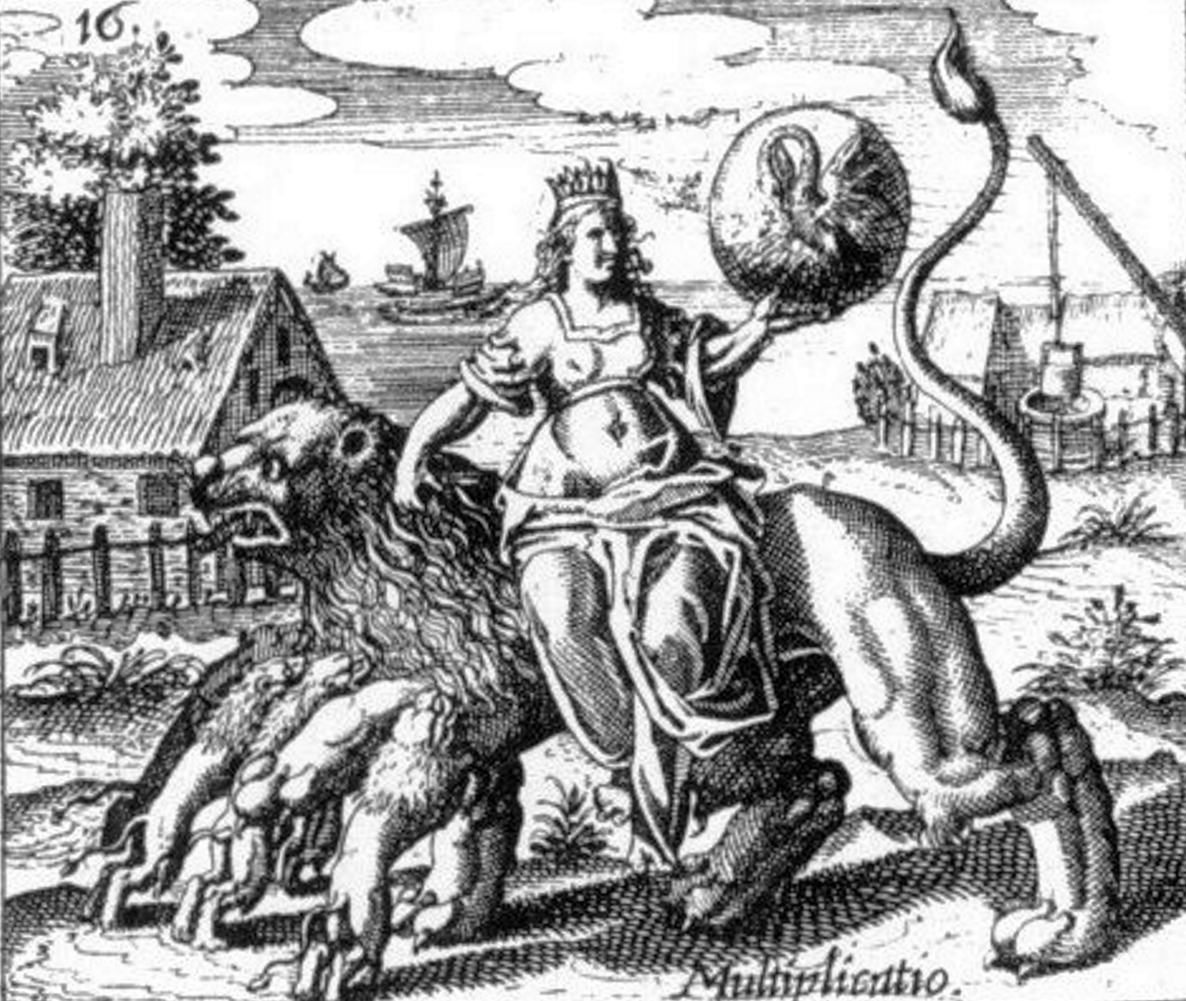Multiplication (alchemy) on:
[Wikipedia]
[Google]
[Amazon]
 Multiplication is the process in Western
Multiplication is the process in Western
 Multiplication is the process in Western
Multiplication is the process in Western alchemy
Alchemy (from the Arabic word , ) is an ancient branch of natural philosophy, a philosophical and protoscientific tradition that was historically practised in China, India, the Muslim world, and Europe. In its Western form, alchemy is first ...
used to increase the potency of the philosopher's stone
The philosopher's stone is a mythic alchemical substance capable of turning base metals such as mercury into gold or silver; it was also known as "the tincture" and "the powder". Alchemists additionally believed that it could be used to mak ...
, elixir or projection powder. It occurs near the end of the magnum opus
A masterpiece, , or ; ; ) is a creation that has been given much critical praise, especially one that is considered the greatest work of a person's career or a work of outstanding creativity, skill, profundity, or workmanship.
Historically, ...
in order to increase the gains in the subsequent projection
Projection or projections may refer to:
Physics
* Projection (physics), the action/process of light, heat, or sound reflecting from a surface to another in a different direction
* The display of images by a projector
Optics, graphics, and carto ...
. George Ripley gives the following definition of multiplication:
::
::
::
::
::
Multiplication was also used to describe the facet of alchemy chiefly concerned with the reproduction of physical gold and silver. Such is the case in Henry IV's 1404 statute against the craft of multiplication ( 5 Hen. 4. c. 4). Henry VI began to issue patents for the practice of alchemy, but the act of Parliament against multipliers was not repealed until 1689.
Method
In his discussion of multiplication, Ripley goes on to compare the medicine or elixir to fire. He notes that the methods of multiplication are related to the processes ofcongelation
Congelation (from Latin: , ) was a term used in medieval and early modern alchemy for the process known today as crystallization
Crystallization is a process that leads to solids with highly organized Atom, atoms or Molecule, molecules, i.e. ...
, cibation, and fermentation. In doing so he also hints at multiplication's internal significance.
Like Ripley, other sources describe multiplication as subjecting the philosopher's stone to further maturation by reiterating the same processes as was used to originally make it. Sendivogius
Michael Sendivogius (; ; 2 February 1566 – 1636) was a Polish Alchemy, alchemist, philosopher, and physician. A pioneer of chemistry, he developed ways of purifying and creating various acids, metals, and other chemicals.
He discovered that a ...
writes, "Having made an End with the Composition of the Lapis, there remains its Multiplication in infinitum which is effected by the same way and with the same operations the Lapis was made; only that instead of dissolved Gold or Silver, you lay in only so much of the Lapis as you laid in before of the said Gold or Silver for the first Confection of the Lapis."Michael Sendivogius. ''Traitez du Cosmopolite nouvellement decouverts ou apres avoir donne unde idee d'une Societe de Philosophes'', Paris, 1691. Comparisons to plant and animal reproduction were also made.
References
{{DEFAULTSORT:Multiplication (Alchemy) Alchemical processes